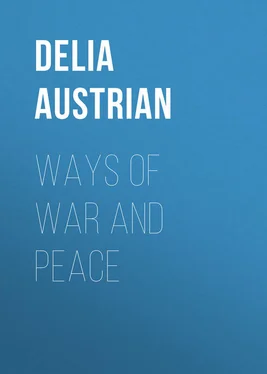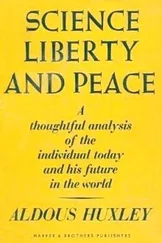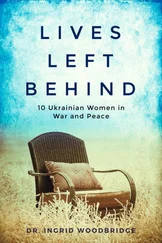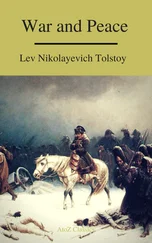Delia Austrian - Ways of War and Peace
Здесь есть возможность читать онлайн «Delia Austrian - Ways of War and Peace» — ознакомительный отрывок электронной книги совершенно бесплатно, а после прочтения отрывка купить полную версию. В некоторых случаях можно слушать аудио, скачать через торрент в формате fb2 и присутствует краткое содержание. Жанр: foreign_antique, foreign_prose, на английском языке. Описание произведения, (предисловие) а так же отзывы посетителей доступны на портале библиотеки ЛибКат.
- Название:Ways of War and Peace
- Автор:
- Жанр:
- Год:неизвестен
- ISBN:нет данных
- Рейтинг книги:5 / 5. Голосов: 1
-
Избранное:Добавить в избранное
- Отзывы:
-
Ваша оценка:
- 100
- 1
- 2
- 3
- 4
- 5
Ways of War and Peace: краткое содержание, описание и аннотация
Предлагаем к чтению аннотацию, описание, краткое содержание или предисловие (зависит от того, что написал сам автор книги «Ways of War and Peace»). Если вы не нашли необходимую информацию о книге — напишите в комментариях, мы постараемся отыскать её.
Ways of War and Peace — читать онлайн ознакомительный отрывок
Ниже представлен текст книги, разбитый по страницам. Система сохранения места последней прочитанной страницы, позволяет с удобством читать онлайн бесплатно книгу «Ways of War and Peace», без необходимости каждый раз заново искать на чём Вы остановились. Поставьте закладку, и сможете в любой момент перейти на страницу, на которой закончили чтение.
Интервал:
Закладка:
Delia Austrian
Ways of War and Peace
FOREWORD
As I advance in years I look upon life as a good deal of a paradox; at times it seems to be a mass of contradictions of love and hate, of friendship and enmity, of truths and falsehoods, of war and peace. In the same flash of time countries are throttling others; other nations are straining themselves not only to soften the hardships created by an international war, but to help feed, care for and dry the tears made by the havoc of slaughter.
A most striking instance of this statement happened a few days before the outbreak of the war. Through a mutual friend, while in Bavaria, I learned that Miss Anna Eckstein, an American woman, who has devoted her life to the world's peace movement was visiting her home in Coburg Saxe-Weimar. It was a short distance from where I was staying, and I asked Miss Eckstein if she would come to me. The answer to my invitation was that much as she would love to see me we should have to defer our meeting to some other time. She was starting to make a tour of the Rhine cities, where she was going to give important talks on the work that was being done to encourage the world's peace. This would take most of her time until the early fall, when she was going to a peace congress in Vienna. She said that I might help her by forming two local centers in Chicago for the signing of many petitions pledging ourselves for the peace idea platform. I had not much more than read this letter and put the petitions away for safekeeping when the word came that the great war was declared.
Time and again during the storm and stress of war this incident appeared as the greatest of paradoxes. Here was a young woman who has consecrated her life, her talents, energy and friendships for the purpose of making the idea of world peace more than a chimera. Her efforts have failed for the time being, because monarchs and statesmen, goaded on by a foolish idea for stronger empires and more possessions, had thrown their nations against each other, resulting in the most cruel and disastrous upheaval of modern times. Many of the world's nations are hurling their tremendous armies with their siege-guns, bombs, mines, air-crafts, submarines and navies at each other. Awful and tremendous are these gigantic masses of destruction. What they accomplish or fail to accomplish will be forgotten when the work of such women as Miss Anna Eckstein and Baroness von Suttner are inscribed in glory.
It was merely by chance I had the pleasure of meeting these two brilliant women at the time of the World's Peace Congress at The Hague. Miss Eckstein had come as a delegate from America bringing petitions of three million names, signed by American men and women, including many of the foremost professors, students, writers, artists, capitalists and workers in all lines of industry. Though born in Germany, she had come to America because she realized that our country believes in peace more than it does in war. For many years she worked entirely with the peace movement in Boston. But she soon saw the need of educating the young people to the ideals and principles of peace. She made a campaign of this country, talking from pulpits and platforms on what the peace idea and ideal would mean for society the world over.
This educational campaign was interrupted for a short time when Miss Eckstein went to take the American petitions to The Hague. She attended the round-table talks, afternoon teas and receptions, where time and again she showed that war, besides being futile was the most reckless extravagance of modern times. The cost of feeding and supporting a soldier would keep a child in school; the cost of a siege-gun would pay for the building of a school house, and the building of a battleship would give a country a new university. She showed them time and again that besides suffering, war meant the destruction of a nation's best manhood. It is the strong and energetic and the brilliant minds that are picked for soldiers. It is the weak and old men along with women and children that usually survive to suffer the hardships and the heartaches made possible by war. It was at one of these international receptions that I had the pleasure of hearing Miss Eckstein express some such ideas. She spoke of the work of The Hague Tribunal, and had such confidence in the sincerity of the governments and their representatives that she thought any question of vital importance might be settled there rather than that rulers should enchain civilization and throw nations to the dogs of war.
Later, through a foundation by Mr. Edwin Ginn, the publisher of Boston, Miss Eckstein went to Europe for the purpose of preaching the gospel of peace. She talked in schools, theatres and concert halls before large audiences composed of school teachers, and school children, government officials and working people. But her chief purpose was to educate the school children in the larger, more wholesome ideas of peace. Some of the most spacious and handsomest halls in Germany were put at her disposal, and some of the most influential German officials presided at her meetings. She was equally well received, and was welcomed with the same enthusiasm in France, Italy, England and the North countries. She hoped to carry this propaganda into Japan, India and Africa. At the same time she was working to carry a petition of thirty million names, signed in all parts of Europe and the United States, to The Hague. This stupendous work was almost finished when the war broke out.
It was at The Hague that I first heard Bertha von Suttner, a well-known Austrian writer and lecturer. She became world-famous as the author of "Lay Down Your Arms," which won for her the Nobel Peace Prize. Her theme at The Hague was "Combatting Dueling in Germany." She told of the way the sons of officers and of the aristocracy at an early age were instructed to look upon dueling as an important part of their education. The more cuts, the more glory, for it was splendid experience for the more terrible combat of war. A deep gash in a man's face made him better looking, for it showed that he had plenty of courage. She was gathering a strong petition signed by men and women of many nationalities against this wicked pastime. It was a few years later, in Chicago, that I heard Bertha von Suttner speak on the war in the Balkans. She explained that it was only a small spark in a greater conflagration. It was being patched up, not settled, and unless the United States used her persuasive and moral influence these issues would burst forth in an international conflagration. This prediction has become a reality, though Baroness von Suttner did not live to see the day.
For many years America has had a large National Peace Society. Though it originated in Boston its members were composed of men and women living in all parts of the United States. Besides promulgating a philosophy of peace, through congresses and pamphlets, its delegates have gone to all the important European congresses. This organization was instrumental in influencing the United States to intercede in the Russo-Japanese war; it was instrumental in making The Hague Tribunal a well-organized body. It inspired Carnegie to give to The Hague Congress a building as beautiful as the ideals and purposes of the Congress were noble and just.
Many of our greatest American statesmen and scholars have combatted peace measures and advocated stronger armies and navies. Other men of prominence in all parties have striven to keep our country in friendly relations with other powers, making treaties a worthy substitute for strong, military forces.
Читать дальшеИнтервал:
Закладка:
Похожие книги на «Ways of War and Peace»
Представляем Вашему вниманию похожие книги на «Ways of War and Peace» списком для выбора. Мы отобрали схожую по названию и смыслу литературу в надежде предоставить читателям больше вариантов отыскать новые, интересные, ещё непрочитанные произведения.
Обсуждение, отзывы о книге «Ways of War and Peace» и просто собственные мнения читателей. Оставьте ваши комментарии, напишите, что Вы думаете о произведении, его смысле или главных героях. Укажите что конкретно понравилось, а что нет, и почему Вы так считаете.












